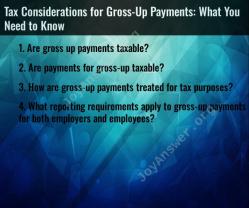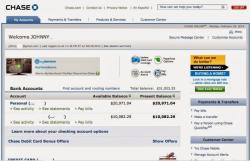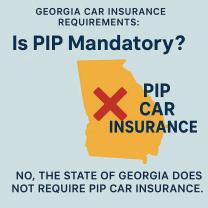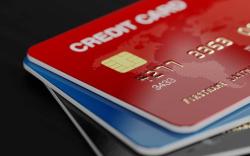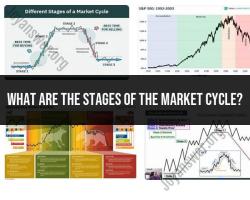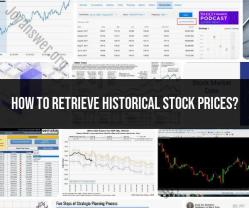Is a home equity line of credit good or bad?
A home equity line of credit (HELOC) can be either a good or bad financial choice, depending on how it's used and whether it aligns with your financial goals and circumstances. Here are some factors to consider when evaluating whether a HELOC is a good or bad idea:
When a HELOC can be a Good Idea:
Home Improvements: Using a HELOC to fund necessary home improvements or renovations that increase your property's value can be a wise investment. This can potentially raise the resale value of your home.
Debt Consolidation: If you have high-interest debts (like credit card debt), using a HELOC to consolidate those debts into a lower-interest loan may save you money and simplify your finances.
Emergency Fund: Establishing a HELOC as an emergency fund can provide financial security in case of unexpected expenses, reducing the need to rely on high-interest credit cards or loans.
Education Expenses: HELOCs can be used to fund education expenses, and the interest may be tax-deductible in some cases (consult a tax advisor for specifics).
Low, Fixed-Rate Options: Some HELOCs offer low introductory or fixed-rate options, making them more predictable and potentially cost-effective for specific needs.
When a HELOC can be a Bad Idea:
Excessive Spending: Using a HELOC for discretionary or non-essential spending that doesn't improve your financial situation can lead to excessive debt and financial trouble.
Risk of Foreclosure: If you can't make HELOC payments, you risk losing your home through foreclosure, as your home is used as collateral.
Rising Interest Rates: HELOCs often have variable interest rates that can increase over time. If interest rates rise significantly, your borrowing costs could go up.
Short-Term or Speculative Investments: Using a HELOC for short-term investments or speculative ventures can be risky and lead to financial losses.
Inadequate Repayment Plan: Without a clear plan to pay back the HELOC principal, you may end up in a cycle of debt, only making minimum interest payments.
Fees and Costs: HELOCs may come with fees, including application fees, annual fees, and closing costs. Be aware of these additional costs.
Before considering a HELOC, carefully assess your financial situation and goals. Speak with a financial advisor or mortgage professional to understand the terms, interest rates, and potential risks associated with the HELOC. Ensure that you have a responsible plan for using the funds and repaying the loan. Ultimately, whether a HELOC is a good or bad idea depends on your individual circumstances and how you intend to use the credit line.
Weighing the Pros and Cons: Is a Home Equity Line of Credit Good or Bad?
A home equity line of credit (HELOC) is a type of loan that allows you to borrow money against the equity in your home. Equity is the difference between the value of your home and the amount you owe on your mortgage.
HELOCs can be a good way to finance a variety of expenses, such as home improvements, debt consolidation, or college tuition. However, it is important to understand the pros and cons of HELOCs before deciding if one is right for you.
Pros of a HELOC:
- Flexibility: HELOCs are very flexible loans. You can borrow money as needed, and you only pay interest on the amount you borrow.
- Lower interest rates: HELOCs typically have lower interest rates than other types of loans, such as credit cards and personal loans.
- Tax benefits: The interest you pay on a HELOC may be tax-deductible, but you should consult with a tax advisor to confirm this.
Cons of a HELOC:
- Risk of foreclosure: If you default on your HELOC, you could lose your home.
- Rising interest rates: HELOCs have variable interest rates, which means that your interest rate could go up over time.
- Fees: HELOCs may have fees associated with them, such as origination fees and annual fees.
Overall, whether or not a HELOC is a good or bad financial decision depends on your individual circumstances. If you have a good credit score and a lot of equity in your home, a HELOC may be a good way to finance a major expense. However, it is important to be aware of the risks involved, such as the risk of foreclosure and rising interest rates.
Here are some things to consider before deciding if a HELOC is right for you:
- Your financial goals: What do you want to use the money from the HELOC for? Make sure that the money will be used for a wise investment, such as home improvements or debt consolidation.
- Your financial situation: Do you have a good credit score and a lot of equity in your home? If not, you may not be approved for a HELOC or you may not be able to get a good interest rate.
- Your risk tolerance: HELOCs are a type of secured loan, which means that you could lose your home if you default on the loan. If you are not comfortable with this risk, a HELOC may not be the right choice for you.
If you are considering a HELOC, be sure to talk to a financial advisor to get personalized advice.
Assessing Financial Risks: The Truth About Home Equity Lines of Credit
HELOCs can be a risky financial move, especially if you are not careful. Here are some of the financial risks associated with HELOCs:
- Risk of foreclosure: If you default on your HELOC, you could lose your home. This is because HELOCs are secured loans, which means that your home is the collateral for the loan.
- Rising interest rates: HELOCs have variable interest rates, which means that your interest rate could go up over time. This could make your monthly payments more expensive and could make it more difficult to repay the loan.
- Fees: HELOCs may have fees associated with them, such as origination fees and annual fees. These fees can increase the total cost of the loan.
- Overspending: HELOCs can make it easy to overspend, especially if you have a high credit limit. If you are not careful, you could end up borrowing more money than you can afford to repay.
Navigating Home Equity: Is It a Positive or Negative Financial Move?
Whether or not a HELOC is a positive or negative financial move depends on your individual circumstances. If you use a HELOC wisely, it can be a good way to finance a major expense or to consolidate debt at a lower interest rate. However, if you are not careful, a HELOC can be a risky financial move that could lead to foreclosure.
Here are some tips for using a HELOC wisely:
- Only borrow what you need. Don't use your HELOC to finance unnecessary expenses.
- Have a plan for repaying the loan. Make sure you can afford to make the monthly payments, even if interest rates rise.
- Monitor your spending. Don't overspend on your HELOC.
- Consider refinancing your HELOC. If interest rates fall, you may be able to refinance your HELOC to get a lower interest rate.
If you are considering a HELOC, be sure to talk to a financial advisor to get personalized advice.








